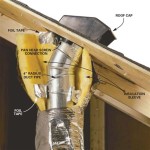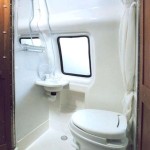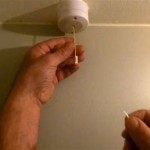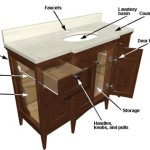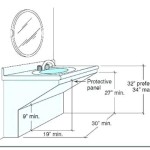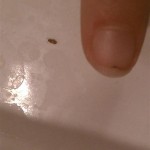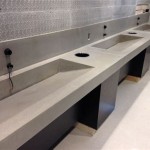Bathroom Faucet Drain Install: Essential Aspects to Consider
Bathroom faucet drain install is a crucial aspect of bathroom maintenance, ensuring proper drainage and preventing leaks. Understanding the essential aspects of this process is vital for both DIY enthusiasts and professionals alike. This article explores the key elements involved in installing a bathroom faucet drain.Type of Drain
The type of drain you choose will depend on the compatibility with your faucet and sink. The most common types include: -Pop-up drains:
Feature a stopper that opens and closes by pressing a button or lever. -Grid drains:
Have a removable grid that prevents hair and debris from clogging the drain. -Lift-and-turn drains:
Have a drain stopper that lifts up and rotates to open or close.Size and Compatibility
Ensure the drain you select fits the size and thread pattern of your faucet. Most bathroom faucets have standard 1 1/4-inch drains, but some may require larger or smaller sizes. Check the manufacturer's instructions for proper compatibility.Materials and Finish
Drains are typically made of brass, stainless steel, or plastic. Brass drains are durable and resistant to corrosion, while stainless steel drains are rust-resistant and easy to clean. Plastic drains are a budget-friendly option, but they may not be as durable. The finish should match the faucet and bathroom décor.Installation Process
Installing a bathroom faucet drain involves several steps: -Preparing the sink:
Clean the sink area and apply plumber's putty around the drain hole. -Installing the drain body:
Insert the drain body into the hole and tighten it using a wrench or pliers. -Attaching the stopper:
Place the stopper assembly over the drain body and secure it according to the manufacturer's instructions. -Testing the drain:
Run water into the sink to ensure the drain functions properly and there are no leaks.Maintenance and Care
Regular maintenance is crucial to prevent drain clogs and leaks. -Cleaning the drain:
Regularly remove hair and debris from the drain stopper and grid, if applicable. -Lubrication:
Lubricate moving parts, such as the lift rod and stopper, to ensure smooth operation. -Checking for leaks:
Inspect the drain for any leaks or dripping and address them promptly. By considering these essential aspects, you can ensure a secure and efficient bathroom faucet drain installation. Proper attention to type, size, materials, installation, and maintenance will contribute to a trouble-free and functional bathroom.Install A Drain Stopper So The Is Removable
How To Install Bathroom Sink Drain Queen Bee Of Honey Dos

Bathroom Sink Popup And Stopper Problems
How To Install Bathroom Sink Drain Queen Bee Of Honey Dos

Installing A Bathroom Sink Drain Efficient Plumber

How To Connect A Bathroom Sink Drain

How To Replace A Sink Stopper Quick And Simple Home Repair

How To Replace A Pop Up Sink Drain Install The New Handymanhowto In 2024 Bathroom

How To Replace Or Maintain A Sink Pop Up Drain Assembly
How To Install Bathroom Sink Drain Queen Bee Of Honey Dos
Related Posts
